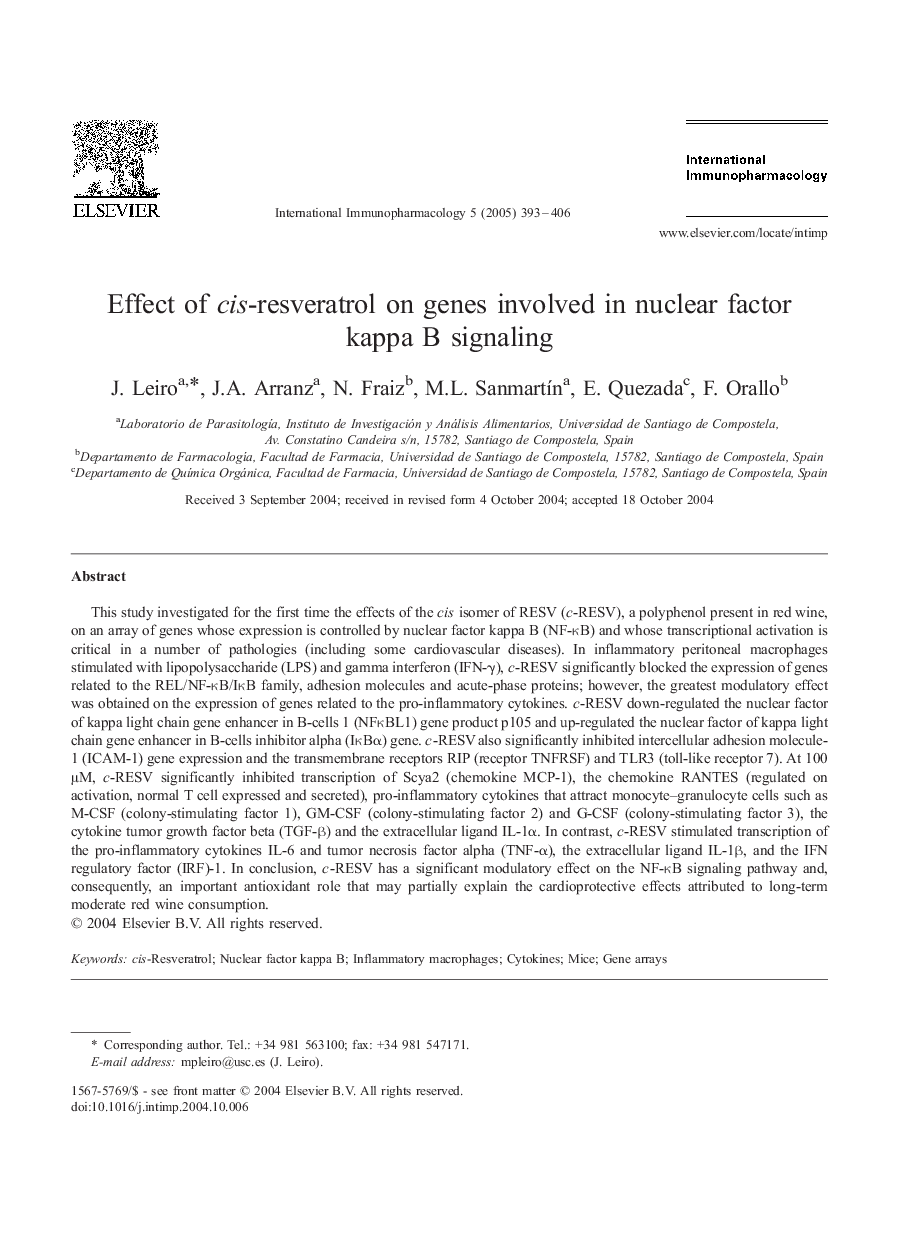| Article ID | Journal | Published Year | Pages | File Type |
|---|---|---|---|---|
| 9007933 | International Immunopharmacology | 2005 | 14 Pages |
Abstract
This study investigated for the first time the effects of the cis isomer of RESV (c-RESV), a polyphenol present in red wine, on an array of genes whose expression is controlled by nuclear factor kappa B (NF-κB) and whose transcriptional activation is critical in a number of pathologies (including some cardiovascular diseases). In inflammatory peritoneal macrophages stimulated with lipopolysaccharide (LPS) and gamma interferon (IFN-γ), c-RESV significantly blocked the expression of genes related to the REL/NF-κB/IκB family, adhesion molecules and acute-phase proteins; however, the greatest modulatory effect was obtained on the expression of genes related to the pro-inflammatory cytokines. c-RESV down-regulated the nuclear factor of kappa light chain gene enhancer in B-cells 1 (NFκBL1) gene product p105 and up-regulated the nuclear factor of kappa light chain gene enhancer in B-cells inhibitor alpha (IκBα) gene. c-RESV also significantly inhibited intercellular adhesion molecule-1 (ICAM-1) gene expression and the transmembrane receptors RIP (receptor TNFRSF) and TLR3 (toll-like receptor 7). At 100 μM, c-RESV significantly inhibited transcription of Scya2 (chemokine MCP-1), the chemokine RANTES (regulated on activation, normal T cell expressed and secreted), pro-inflammatory cytokines that attract monocyte-granulocyte cells such as M-CSF (colony-stimulating factor 1), GM-CSF (colony-stimulating factor 2) and G-CSF (colony-stimulating factor 3), the cytokine tumor growth factor beta (TGF-β) and the extracellular ligand IL-1α. In contrast, c-RESV stimulated transcription of the pro-inflammatory cytokines IL-6 and tumor necrosis factor alpha (TNF-α), the extracellular ligand IL-1β, and the IFN regulatory factor (IRF)-1. In conclusion, c-RESV has a significant modulatory effect on the NF-κB signaling pathway and, consequently, an important antioxidant role that may partially explain the cardioprotective effects attributed to long-term moderate red wine consumption.
Related Topics
Life Sciences
Immunology and Microbiology
Immunology
Authors
J. Leiro, J.A. Arranz, N. Fraiz, M.L. SanmartÃn, E. Quezada, F. Orallo,
